With speakers from all parties and public hearings, the labor reform process restarts after a "resurrection."

Next Monday, exactly 33 days before the end of the current legislative session, Senate Committee IV will formally begin the third debate on the labor reform presented by the Petro administration. The reform, which failed two months ago in Committee VII and was revived by the Senate plenary, via appeal, in the same session in which it voted "No" to the referendum.
With fifteen members, this cell is chaired by Senator Angélica Lozano, of the Green Alliance, who told EL TIEMPO this Thursday that Congress's commitment is to pass a labor reform that serves both workers' rights and job creation in the country and that is not "merely a cosmetic change."
The first decision was to appoint speakers from all political parties: Juan Felipe Lemos of the "U" party; Jhon Jairo Roldán, Liberal; Aída Avella (Historic Pact); Carlos Meisel Vergara (Democratic Center); Carlos Abraham Jiménez (Radical Change); Juan Samy Merehg (Conservative); and Richard Fuelantala (Secular Party). The president of the Commission herself is also on the panel of speakers.
According to the congresswoman, the five weeks of work remaining in Congress would be sufficient to process the two pending debates on the reform and reconcile with the decision made in the House, provided that the forces that supported the appeal in Tuesday's plenary session fulfill the commitment that allowed for the resurrection of the "labor" and, incidentally, that stood in the way of the government's controversial referendum.
The government, for its part, is also taking action and has issued a message urging the process to be a priority both in committee and in the Senate plenary session.
"We have just submitted a message of urgency and insistence to Congress regarding the Labor Reform. The message of urgency is for the Senate to resolve, within a maximum period of 30 days, on the bill. The insistence is for any other matter to be moved from the agenda until a resolution is made on that bill. Article 163 of the Constitution and 191 of Law 5 of 1992," Minister Armando Bendetti reported this Thursday on his X account.
The Executive Branch did not take kindly to the Senate's decision. Even President Gustavo Petro has criticized Lozano for seeking to "pass the reform by law without the people."
From China, Petro assured that he would once again present a proposal for a referendum, this time on issues related to the health care model, and continued waving the flag of the call to take to the streets and the attacks from Congress, despite the political fact that all of the proposals included in the reform, and more, are back in Congress and could even become a legal reality much sooner than a referendum that would have achieved the thresholds of participation and approval would have allowed.
Despite the fact that the government, starting with the President, insists on the consultation, in an interview with EL TIEMPO, the Minister of Labor, Antonio Sanguino, confirmed that they will attend the debate on the revived bill. According to Sanguino, the call to take to the streets is justified because the Executive does not feel "absolutely, 100 percent, confident in what will happen with the reform." In this regard, he asserted that sending the reform to the Fourth Committee supposedly anticipates another collapse of the reform.
"In the fourth, (Efraín) Cepeda and his friends have a majority, ten out of five," said the minister, who also questioned Angélica Lozano's potential role: "She has played with the opposition. Angélica Lozano is not an independent."
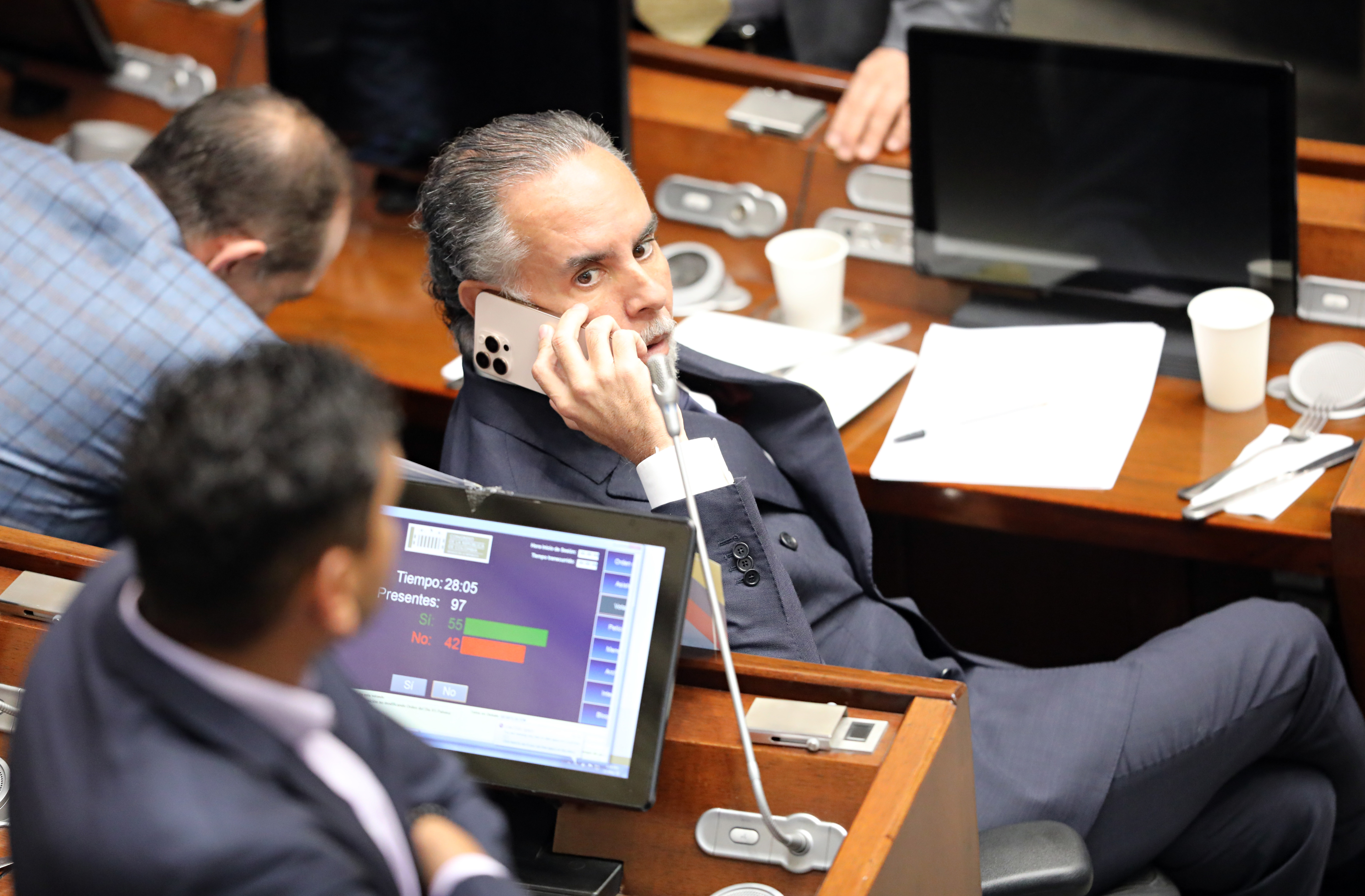
Minister Armando Benedetti during the referendum session. Photo: Milton Diaz / El Tiempo
This Thursday, however, the Speaker of Congress and one of the leaders of the Conservative Party, Senator Efraín Cepeda, stated in various media outlets that his party is willing to push through a consensus-based reform, and among the key points he mentioned was an increase in overtime and Sunday pay. This issue was the government's main focus in trying to gain support for the referendum, which would have cost the country approximately 700 billion pesos and would also have been held during the electoral season.
The committee's most recent precedent in its relationship with the government was the December 2024 filing of the tax reform or financing law, a decision that ultimately prevailed in all of Congress's economic committees.
But the vote on the appeal, just this Wednesday, suggests a picture that doesn't fit Sanguino's vision. Thus, among those who voted yes to reopen the debate are prominent government opponents such as Juan Felipe Lemos and Carlos Abraham Jiménez. Some accounts don't even show a 10-5 vote against, but rather seven possible votes for the government, six for the opposition, and two more votes that are not so clear. This analysis is based on the decisions they expressed in the votes on the appeal, the referendum, and other previous decisions.
Antonio Sanguino's argument is based in part on the presence of two conservatives, two from the U Party and three from the Liberal Party. However, partisan origins do not imply aloofness from the government. In some cases, it is quite the opposite.
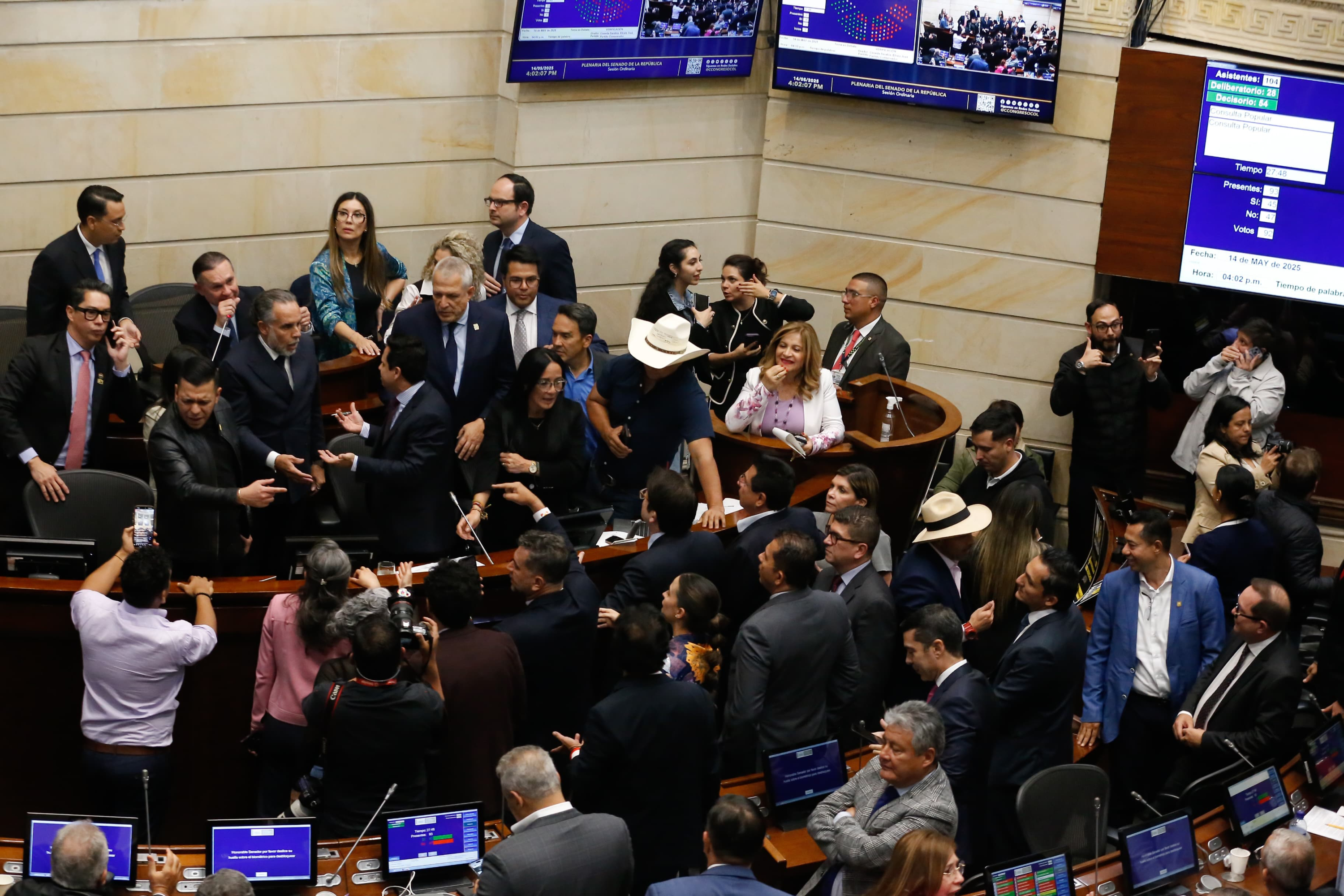
Atmosphere in the Senate after the referendum vote. Photo: Néstor Gómez - El Tiempo
Representing the Blues, who were ordered to vote no on the referendum, are Diela Liliana Benavides and Juan Samy Merheg. Although the latter can be identified as opposed to the government, he voted no on the referendum and declined to comment on the appeal. Benavides is sympathetic to the government.
Benavides is one of the three conservative congresswomen in the government, from Carlos Andrés Trujillo's group. Given her party's decision not to support the government in the referendum, she chose not to attend the session. This would mean she would lose one vote for the government's claim that the opposition holds a majority.
Of course, if the Conservatives' decision to issue a caucus order opposing the Executive branch is repeated, they could not support the initiative. But, again, it should be remembered that Senator Efraín Cepeda, a key figure in his party's positions, has said they will support a reform that achieves consensus.
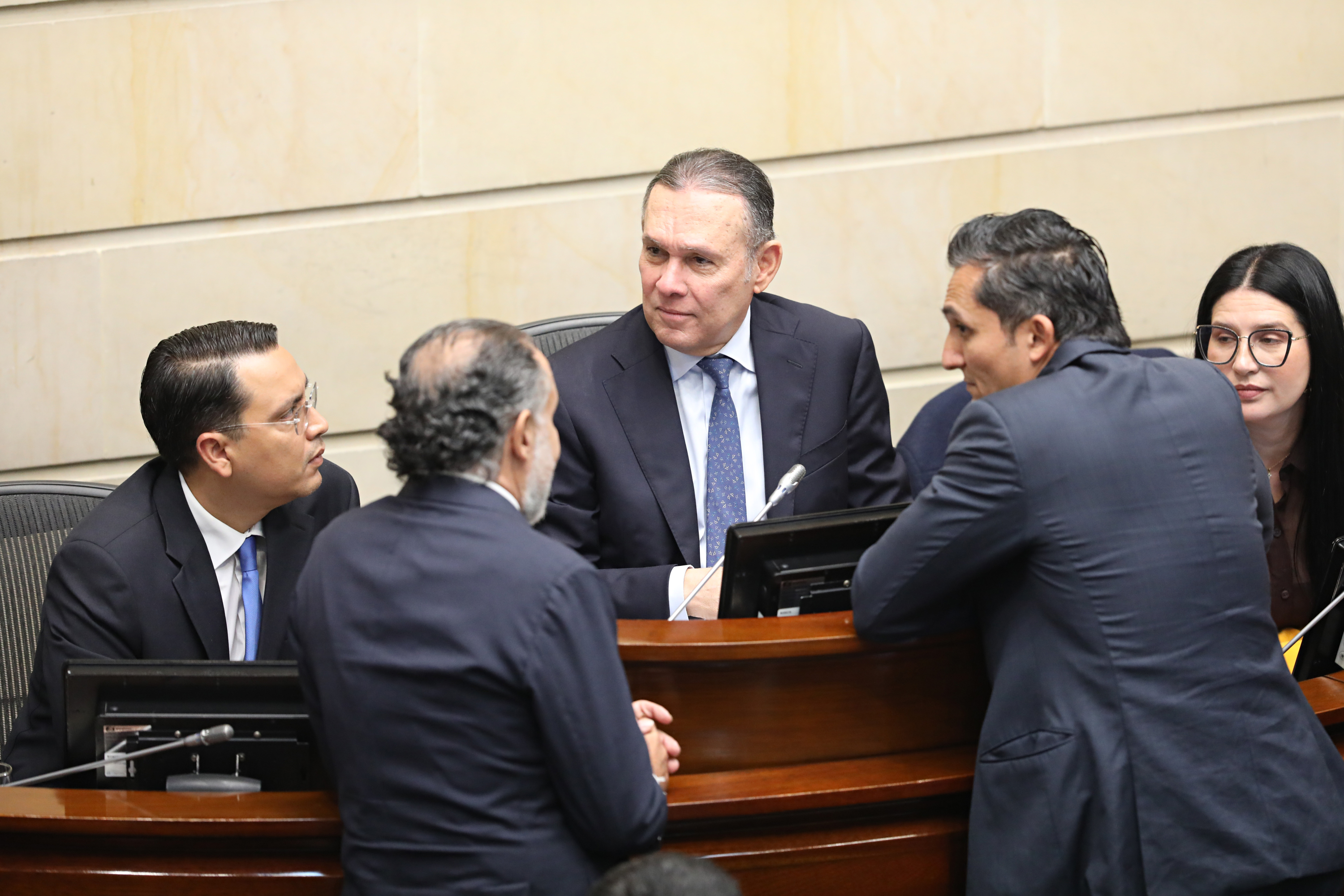
Senate President Efraín Cepeda during the session where the referendum was discussed. Photo: Milton Diaz / El Tiempo
As for the "U" party, the senators would also be divided, one per side. Lemos, who is one of the coordinating rapporteurs, has been opposed to the Executive and was quite critical of its approach to the referendum. However, he supported the appeal, so it could be said that the margin would be open for him to say yes to some points of the reform. Furthermore, in his message after his appointment, he expressed interest in moving the project forward: "We are in a constructive mood; we are aware of the current situation in the country and the responsibility we have. Our goal will be to achieve a balanced reform that brings peace of mind to the country."
On the other hand, John Moisés Besaile, brother of the convicted Musa Besaile, is one of the U senators close to the Petro administration. He was always among those who were going to support the referendum and belongs to the ruling party bloc within that party.
On the Liberal side, the senators of the Fourth Party are aligned with the ruling party. This was evident throughout Wednesday's session. Jhon Jairo Roldán is the second coordinator and is very close to the Executive Branch in his proposals. Claudia Pérez is also on the list of the six Liberal senators who have supported government projects, as is Laura Fortich, who has even appeared at public events for the Presidency itself.
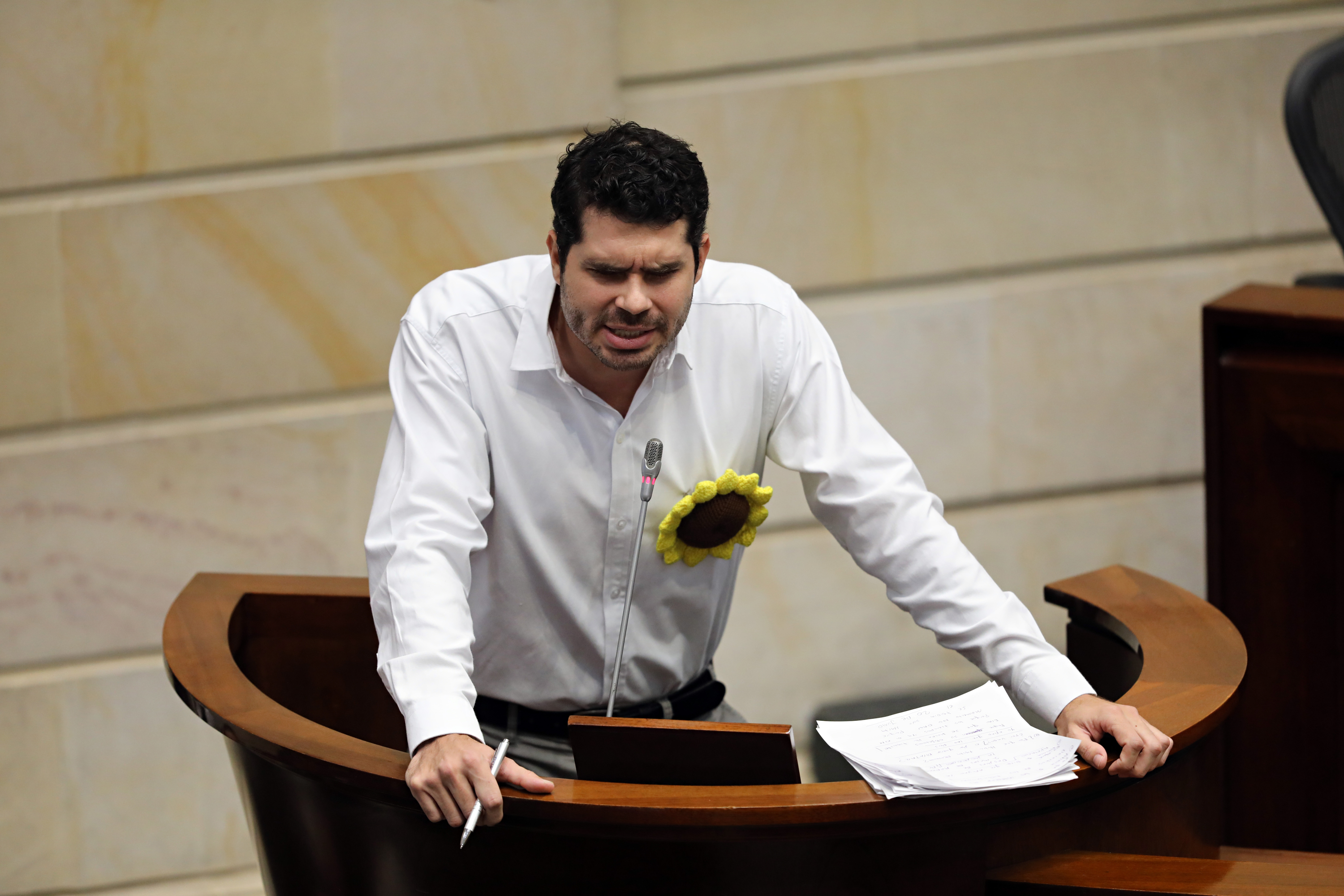
Senator Fabián Díaz during the referendum debate. Photo: Milton Diaz / El Tiempo
There are two more congressmen who are positioning themselves as close to the Executive Branch. The most obvious of all is Aida Avella, of the Historic Pact. The second is Paulino Riascos, of ADA—a party that was part of the leftist coalition until a few months ago. Although the latter has been critical of the Petro administration, in Wednesday's session he was seen voting in favor of the government's proposals.
On the other hand, there are the cases of Richard Fuelantala and Angélica Lozano, both speakers. The former has supported some government proposals, such as pension reform—which he voted for in exchange for an article allowing indigenous people to retire early. However, on the day the referendum was discussed, he chose not to cast a vote in favor of the Executive Branch, despite Minister Benedetti's support.
As for Lozano, she is one of the independent congresswomen. However, in this case, she has said that it is important to advance the labor reform. She emphasized during the debate in recent weeks that the only way forward is through Congress, since going to the polls did not guarantee that the referendum would meet the minimum threshold to be binding.
How is the opposition? The remaining members of the Fourth Committee are clearly in opposition. They are: Enrique Cabrales and Carlos Meisel, from the Democratic Center, and Carlos Abraham Jiménez and Carlos Mario Farelo, from the Radical Change party. Those from Uribe's party abstained from voting on the appeal and voted against the referendum, while those from Germán Vargas Lleras's party voted in favor of the appeal and rejected the call to the polls. They only supported the revival of labor reform as a way to avoid calling the referendum.
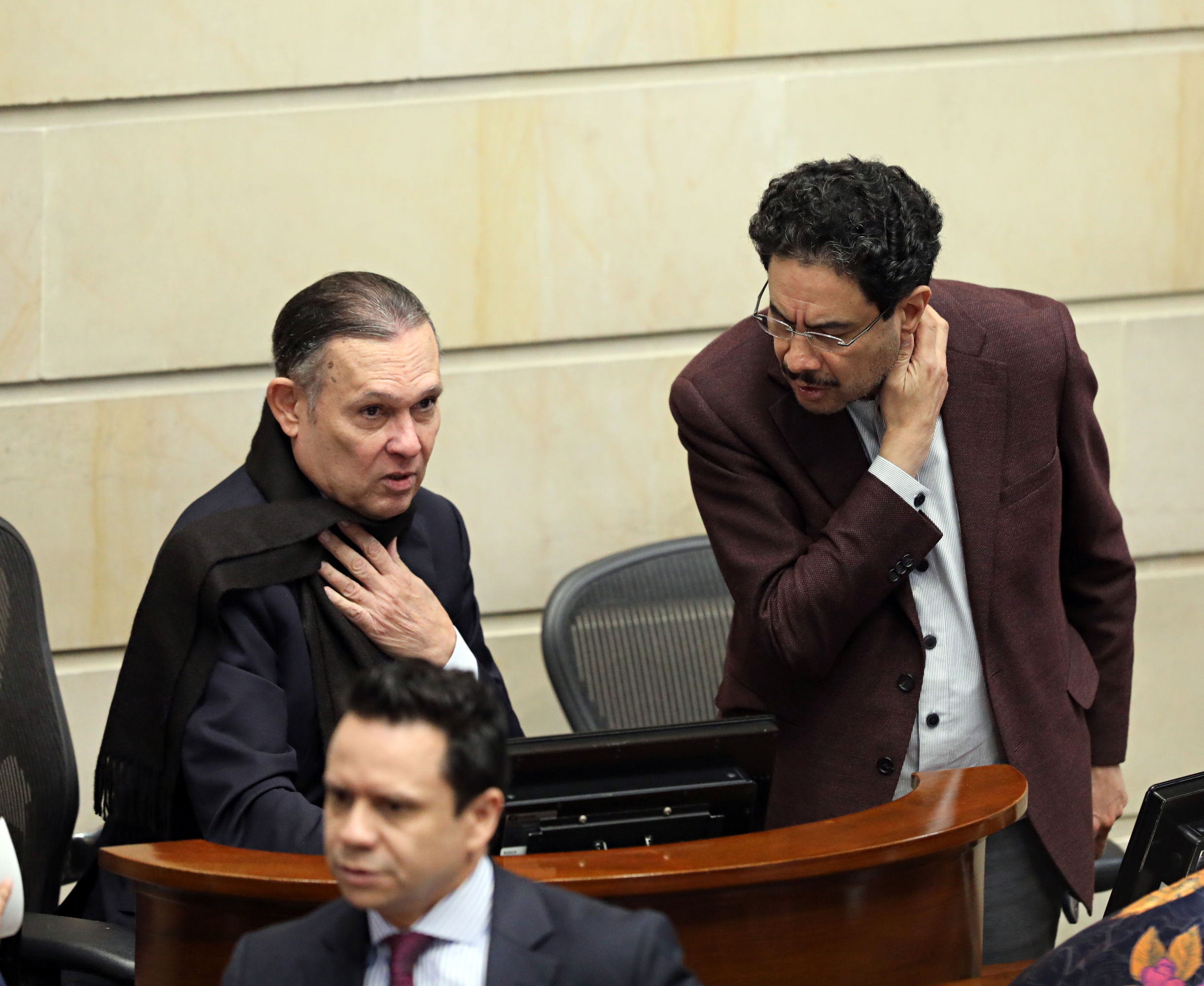
Senators Efraín and Iván Cepeda during the referendum debate. Photo: Milton Diaz / El Tiempo
At first, one might think that these four, along with Juan Samy Merheg, would deny any support for the labor reform. However, Meisel, who is the rapporteur, was unequivocal in his position regarding the initiative. "I welcome the appointment as rapporteur for the appealed labor reform. With study and rigor, we will make every effort to take advantage of this opportunity to pass a reform that strengthens fraternal ties between employers and workers, creates jobs, and promotes entrepreneurship," he declared.
This is what the project schedule will look like Since Wednesday, Angélica Lozano has provided a timeline of what would need to be done to advance the reform. Now, as the person in charge of processing the bill, she has made some changes to what she presented in the Senate plenary session, but she still committed to advancing the bill before June 20.
With that goal in mind, she published a timeline indicating that the process should begin next Monday with a public hearing. Tuesday and Wednesday should be used to prepare the report. Then, on Thursday, the text for discussion should be filed. It should be announced the following Monday, and its approval in the third reading should be ready by May 30. This is three days shorter than the senator's proposal in the plenary session and would mean that the fourth reading could take no more than four days, or there would be no time to reconcile the texts approved by the Senate and the House.
See more: 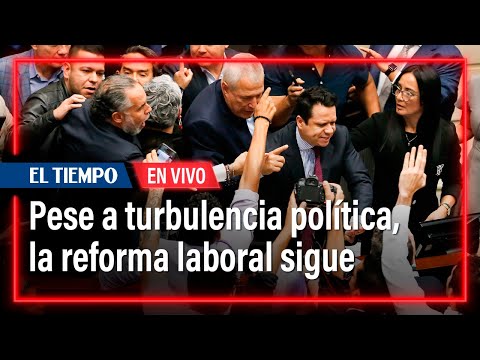
The Senate revived the labor reform and scuttled the referendum. Photo:
Juan Sebastian Lombo Delgado
eltiempo





